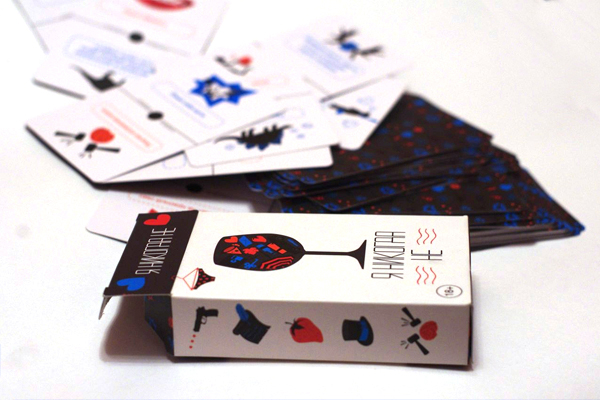
Never Have I Ever: The Game Of Poor Life Decisions is trying to make frat-party-style shaming into a card game for the whole (over 18) family! To that end, it’s tone is wildly inconsistent, whiplashing from incredibly harmless admissions to potentially relationship-ending confessions. The other reason it doesn’t translate well is that this game doesn’t really know what it wants to be. When your last line in the rules is essentially ‘If we offend you, send us more money’, that says a lot about your game. All you really need to play NHIE is a beer and a sordid past and a willingness to have people laugh at you. By transforming the drinking game into a game with points and rules, it clutters the experience. The classic party game is really built around saying/admitting to embarrassing things and laughing/being laughed at about them. The first is that there isn’t much ‘game’ to begin with. That’s the case for two reasons, I think. But we found that this classic party game does not translate well into ‘card game’ form. I’ll say up front that we went in with high hopes – this game is very highly rated, claiming a #1 Best Seller seal on Amazon. This is a card game adaptation by Ideas Never Implemented, for 4-12 players. It’s an activity based on shameful admissions and group laughter, about picking embarrassing things of which you know your friends are guilty, and, mostly, it’s about getting/being drunk. Then, anyone who DID do that thing either takes a drink or puts down a finger or whatever, and if you are the last person who didn’t get embarrassed out of the game/pass out on the floor, you win.

There are a million variants on it, but the structure goes like this – Someone starts a sentence with the phrase ‘Never have I ever…’ and then details some embarrassing scenario. Never Have I Ever: The Game Of Poor Life Decisions is based on a classic drinking/party/college game that far predates the subject of this review (and for the rest of the review, I will use NHIE to refer to the party game, as opposed to the card game). Wow, that’s surprisingly deep…oh, I’m supposed to fill in the blank with something terrible, I guess. This time, the reasons were clear from the beginning. And if a game is a flop for us, we try to play it around to try to figure out why we’re not connecting to it.

We don’t like giving just one perspective on things, though when we agree, it makes reviews really easy.

Our review style, that whole ‘conversational’ thing we do, exists because we all have our differing opinions on games, and maybe I’m in love with something, but Rob hates it, and Jess is kickass at it but doesn’t really enjoy it, but Diana thinks the art is neat, and so on. See, when we do reviews, we make it a point to play the subject game a bunch of times, often with lots of different groups. So this review isn’t going to read like most of Gameosity’s reviews. I’m going to get the ‘Never Have I Ever…Felt Crappier Writing A Game Review’ joke out of the way now.


 0 kommentar(er)
0 kommentar(er)
